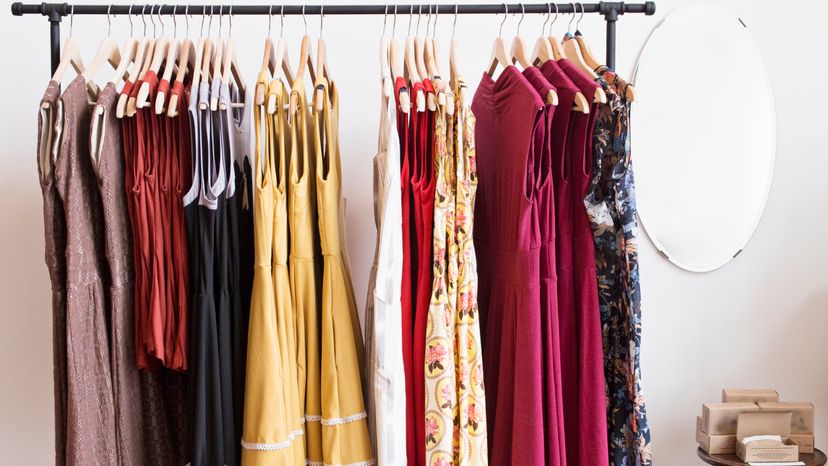
Are your old shirts from five years ago considered vintage, or just old (and gross, for that matter)? Will they become vintage if you hang onto them long enough? Both vintage and old are subjective terms, so determining the difference involves looking at a variety of characteristics.
Age is the first factor in determining if something is vintage, and it's also the hardest to pin down. Most will say something qualifies as vintage if it's 20 to 25 years old or older. In fact, the online shop Etsy, which allows users to sell vintage and handmade goods, requires items labeled vintage to be at least 20 years old. On the other hand, old is relative. A pair of shoes you've had in your closet for three years might be old, and shoes you've had for 10 years might be really old, but neither would be considered vintage.
Advertisement
Another determining factor is symbolism.In winemaking -- where the term "vintage" originates -- a vintage wine is one made from grapes all grown and harvested in a single year. This makes a vintage wine especially representative of a particular year. Vintage clothing can similarly be representative, or even emblematic, of a specific year or era in time and fashion. Just as 1960s mod dresses or 1920s flapper dresses are timeless and iconic, savvy shoppers on the hunt for vintage clothing will seek out styles that are recognizable.
Quality is another huge consideration. Anything can be considered old -- shoes, clothes, cars, electronics. But not everything old is of good enough quality to receive a label that carries as much clout as the word "vintage." A vintage wine, for instance, is one of particularly high quality, and vintage clothing must also be of excellent quality. Vintage clothing should be made well to stand the test of time, with quality fabrics and sturdy stitching, and if its age shows too much it may not be worth a second look.
Vintage items are also desirable. Just browse Etsy or eBay and you'll see plenty of items touted as "vintage," but very few labeled as "old." That's because the word vintage connotes not only quality, but desirability. The word "old" makes you think of something that's broken or damaged, but the word "vintage" seems like something you'd want to check out. Just talking about vintage clothing evokes images of Chantilly lace, intricate beadwork and iconic silhouettes.
Want to shop for vintage, but don't know what to look for? Keep in mind the following tips. First,look for quality. Clothes that have been around a while are most likely used, which means you'll need to evaluate their condition. Look for obvious flaws and signs of wear and tear, like missing buttons, popped seams, obvious stains or threadbare fabric. Some signs of age can be fixed to make a garment wearable, but others are just worth passing on – if it has a funky smell, not even dry cleaning might get it out. At the same time, look for functionality. Why buy a vintage dress if you can't actually wear it? Lastly, look at larger sizes than you're used to buying. Over the years sizing has trended downward to make people feel better about themselves, which means a size 2 today could have been a size 6 a decade or two ago. Just make sure to try the clothes on before you buy.
To learn more about what makes vintage clothing so great, take a look at the links on the next page.
Advertisement

